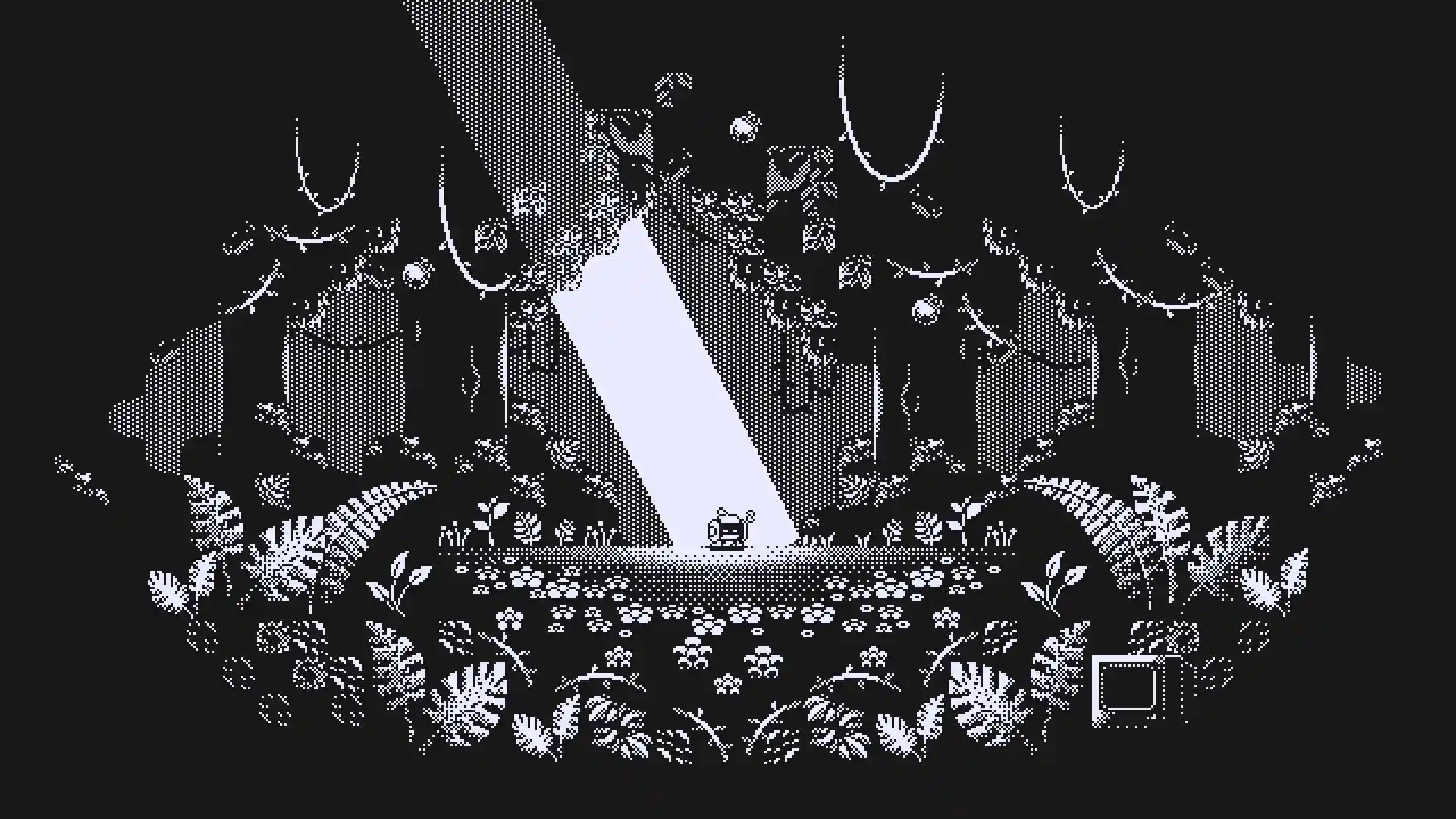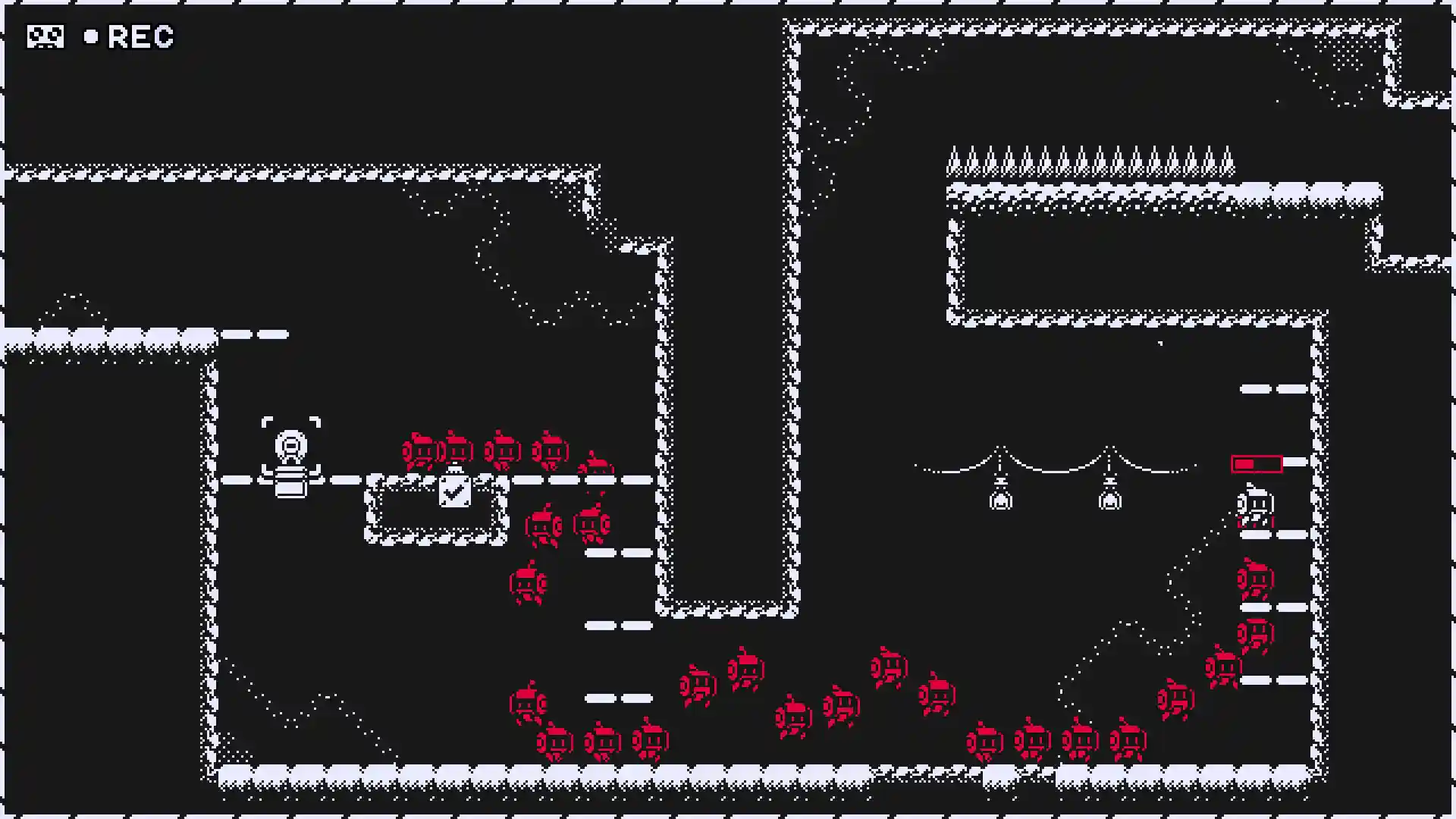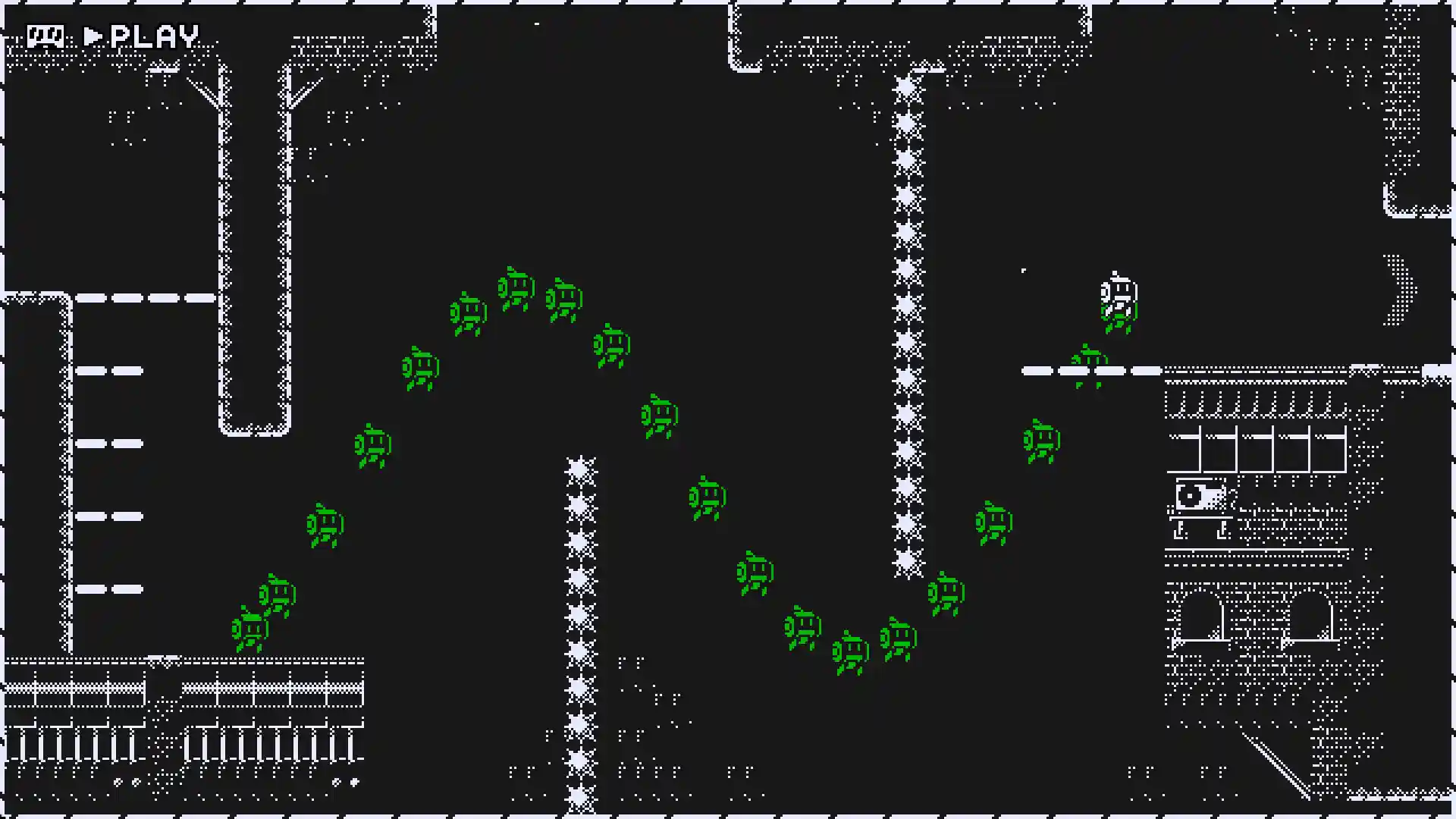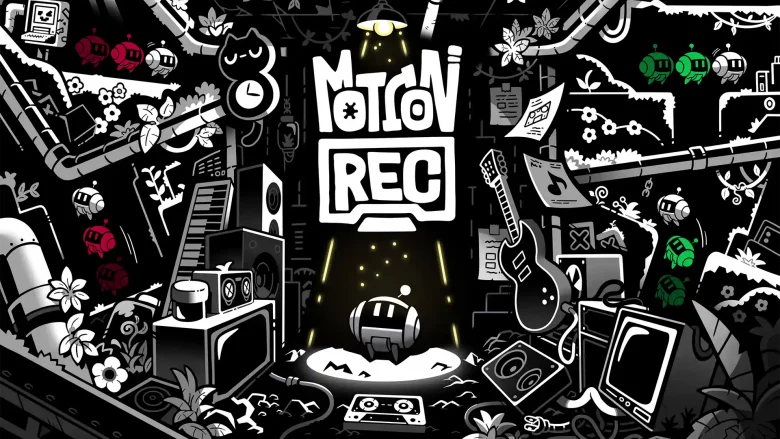Across platforming history there have been so many different ways to make your journey to the next level. Admittedly a lot of platformers focus exclusively on the jumping, but I’ve also played platformers with plenty of other novel ways to get around. Some of these aren’t particularly outlandish, like the addition of a grappling hook or the ability to teleport, but others are more zany like blowing yourself up in the noughties classic ‘Splosion Man (remember that?). I may have just discovered the most intelligent and exciting way to get around in a video game now though, and it’s all thanks to MotionRec.
In MotionRec you play as Rec, a little recording robot in a world that seems to be pretty much abandoned. That’s not going to stop Rec from going on an adventure though, and escaping the lab it lives in to see the outside world. With only the ability to do a little jump, it seems Rec will only be able to make it so far. Thankfully by finding a tape Rec gains new recording powers, and the puzzle platforming begins.

The way this mechanic works is pretty simple really. By holding down the record button you will start to record the exact movement you make. Once you’ve stopped recording you’ll store that movement, and can then play it at any time. Initially I was worried this would be a bit confusing, but after recording Rec walking in a straight line and then playing that recording to cross a horizontal gap I was immediately impressed, and ready to use my newfound powers in more advanced ways.
Finding places you can record your path as you hop upwards is often very helpful, so finding platforms you can scale vertically will be the name of the game in early stages especially. As you progress though you’ll need to utilise more complex patterns, by recording your path on moving platforms for example. There’s very little more satisfying than creating the perfect zigzag recording that weaves effortlessly through a hallway of spikes, and that’s only one of many ways that MotionRec makes you feel like a genius.

After the opening thirty minutes of the game I felt like I really had a handle on all the clever ways I’d record myself in MotionRec, and then a whole host of new elements were added. Portals mean you can record longer and more complex paths by teleporting between them, and this leads to some fantastic moments. There are also winches you can attach yourself to which let you create a path and then reel you in reverse back through it, allowing for some gravity defying recordings. The new ideas come thick and fast in this admittedly fairly short puzzling title, and this meant I devoured it in only a couple of glorious sessions.
Although it’s not the longest game, MotionRec has a trick up its sleeve to keep you playing. Making your way through stages is only half the battle, as there are also collectible notes hidden in hard to reach places. Each stage shows how many of these you’ve missed, and later in the game there are even barriers you can’t pass without a certain number. I’m fairly certain there’s some sort of hidden ending lurking behind collecting every single one too, which is a hook I’ll soon be caught on.

The puzzling side of MotionRec is truly magical, but it’s not all the game has to offer. All I can really say (without spoiling anything) is that there’s more to the story of the game than it seems, and that as you progress you’ll uncover more of the truth. The end of the game actually made me a bit emotional, and for a monochrome puzzle platformer to manage that is rather impressive.
The only real complaint I can lodge against MotionRec is that I wanted more of it, which let’s face it is more of a compliment than a complaint. It’s easily one of the best thoughtful platforming games I’ve ever played, and it’s been expertly designed to provide the perfect learning curve into its clever puzzles. If the idea of a short platformer that engages your brain appeals to you, then MotionRec is one of the easiest recommendations I could ever send your way.


